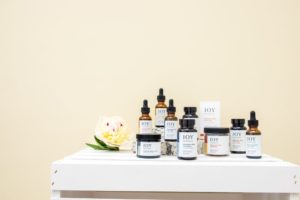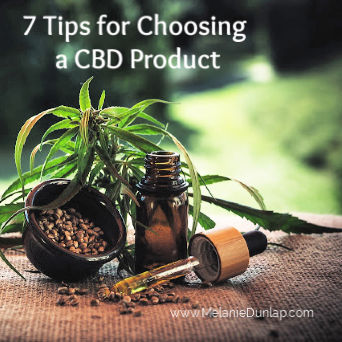The first time I blogged about CBD in Healthy not High, it was to share my personal story of how CBD helped with my post-surgeries nerve pain. The CBD landscape has changed dramatically in the last three years. It seems you can’t throw a rock today without hitting a place that sells CBD made from hemp.
In full disclosure I’m one of those places too. I’ll tell you more about that later in this blog.
Cannabis is the plant genus that contains both hemp and marijuana. Although marijuana is not the actual name of any Cannabis plant. Marijuana is the slang term used to describe varieties of Cannabis that produce psychotropic or euphoric effects on the user due to the amount of THC.
Hemp and marijuana share many similarities and the plants look exactly alike. The defining characteristic between them is the chemical composition. When we compare them, we are talking about two specific compounds, cannabidiol (CBD) and tetrahydrocannabinol (THC).
Simply put, THC will get you high, CBD won’t.
To be classified as hemp, the plant must contain 0.3% or less of THC content. Any plant with a higher THC content is still a Schedule I controlled substance. Even though 33 states and the District of Columbia have legalized some form of marijuana use, it is still illegal at a federal level.
Why is CBD everywhere now?
The seemingly overnight explosion of CBD products was made possible in part by the 2018 Farm Bill. Included in the Farm Bill was the Hemp Farming Act of 2018 that removed hemp (defined as Cannabis with less than 0.3%THC) from the Schedule 1 controlled substance list and made it an ordinary agricultural commodity.
While the Farm Bill does legalize hemp, it is still a highly regulated crop in the US for both personal and industrial production. You still can’t legally grow hemp in your backyard garden between the tomatoes and cucumbers.
Another benefit of the Farm Bill is that it helps to generate and protect research into hemp. Removing the Schedule 1 status makes hemp available to researchers so we can better understand how and why it works.
Hemp is destined to make a big impact on our economy. According to the Farm Bureau hemp fibers are used in textiles, fabrics, yarns, paper, carpeting, insulation, construction materials and even auto parts. Hemp seed and oilcake are used in various foods and beverages, including salad and cooking oil. Hemp seeds are crushed for their oil, producing hempseed oil, which is used in soap, shampoo and cosmetics.
Can CBD help?
Because of its controlled status CBD has largely been ignored in the health arena until recently. This unconventional health remedy has taken its own path into the health and nutrition market. The CBD craze has been entirely organic. It is fueled by people sharing personal results. By word-of-mouth.
Even Dr. Oz acknowledged that his opinion is influenced by how many people tell him they are getting benefits.
These are some of the conditions that people are sharing positive results about:
- Pain Management
- Insomnia
- Anxiety and Depression
- Joint pain
- Inflammation
Supporting the anecdotal evidence, research into CBD has also given us a great discovery, the Endocannabinoid system.
The endocannabinoid system (ECS) refers to a collection of cell receptors and corresponding molecules. The cell receptors act like locks, fitting only particular chemical molecules.
Cannabinoid receptors are found all throughout the body, giving them a wide variety of functions. CB1 receptors are abundant in the central nervous system. CB2 receptors are more often found on immune cells, in the gastrointestinal tract, and in the peripheral nervous system.
The diversity of receptor locations shows just how important endocannabinoids are for day-to-day bodily function. They help regulate the following:
- Sleep
- Appetite, digestion, hunger
- Mood
- Motor control
- Immune function
- Energy
- Inflammation
- Pain
- Memory
- Temperature regulation
Endocannabinoids are the chemical messengers that tell your body to get these processes moving and when to stop. They help maintain optimal balance in the body, also known as homeostasis.
Not all CBDs are created equal
There is a dizzying array of CBD products on the market today. Business is booming and customers are overwhelmed. Not all CBD products are created equal. Some reports say that as much as 70% of CBD product labels are inaccurate when the contents are tested.
Here are some tips for choosing a CBD product:
- Don’t buy products sold at gas stations or convenience stores.
- Talk to a natural health professional that can help guide you on how to use CBD.
- Buy a product that has 3rd party testing available for every batch.
- Use a product that tells you the concentration of CBD in each dose.
- Look for a clean product with only natural ingredients, preferably organic.
- Products made from only hemp seeds, hempseed oil or Cannabis sativa seed oil are not the same as CBD. Make sure your product contains cannabidiol or hemp extract.
- Choose a reputable company.
When starting a new CBD, it is best to start with a small dose and work your way to optimum dosing. Individual dosing needs will vary. Working with a wellness coach knowledgeable in CBDs can help you get the most out of your supplements.
Joy Organics
I have believed in the power of Cannabis for many years. Science and society are now catching up with what our ancestors told us about the healing power of this plant.

With that in mind I did many hours of research and have teamed up with Joy Organics. A completely transparent company, they provide 3rd party testing reports for each batch of CBD products. They are tested to prove they contain zero THC and are free of pesticides and microbials, such as salmonella, mold and heavy metals. Quality products are made with organic carrier oils, stevia, coconut oil and more.
After several conversations with a wonderful staff I have decided to offer their products in my retail space. You can get them in person from me or purchase online here.
There is no group to join or minimum to buy each month. I do make money when you make a purchase. It helps keep the lights on. My goal is to help you save time and money by offering only quality products that I use myself.
If you’ve got questions about CBD or THC I would be happy to work with you. And keep an eye on this blog…there is much more to learn about this new/old healing plant.
This content is NOT written to provide medical advice, professional diagnosis, opinion, treatment or services to you or to any other individual. The information written on this page is intended for general purposes only and is not a substitute for medical or professional care. You should not use this information in the place of the advice of your physician or other healthcare provider. Dr. Melanie Dunlap is not liable or responsible for any advice, course of treatment, diagnosis, or any other information, services, or product you obtain by reading the information in this article or through this site.
